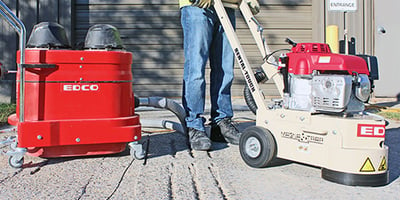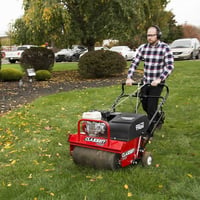As a small business owner in the equipment rental industry, optimizing efficiency is essential for...
Five Tips for Starting Your Own Equipment Rental Business
 Renting out items like party supplies, power tools, and construction equipment can be a lucrative endeavor if done right - and don't just take our word for it. Experts predict the equipment rental industry is expected to reach $58.49 billion by 2029, up from $42.64 billion in 2022. Here are some tips for starting your own successful rental store and maximizing your investment:
Renting out items like party supplies, power tools, and construction equipment can be a lucrative endeavor if done right - and don't just take our word for it. Experts predict the equipment rental industry is expected to reach $58.49 billion by 2029, up from $42.64 billion in 2022. Here are some tips for starting your own successful rental store and maximizing your investment:
1. Choose your niche
First, decide what types of items you want to rent out. Popular rental categories include party and event supplies, furniture, tools and equipment, and more. Pick a specific niche so you can cater your inventory and marketing to that target audience.
- Party and Event Rental stores support indoor and outdoor occasions like weddings, festivals, corporate events, and more. They stock items like tents, tables, chairs, catering equipment, linens, dance floors, and decor. Potential customers include event organizers, wedding planners, and venue representatives. These stores typically have showrooms where clients can see products and visualize what they would look like at their event.
- Equipment and Tool Rental stores (often called rental yards) provide contractors, homeowners, landscaping businesses, and construction companies with the equipment they need to complete their projects efficiently and hassle free. Popular rental items include generators, power tools, concrete planers, lawn and garden equipment, and lifts.
2. Pick your store location
Look for a retail space in an area that is convenient for your target customer, and be sure it is scalable for your inventory as it grows. Don’t be afraid of competition - proximity to your competitors can bring you additional customers!
3. Strategically build your inventory and maintain it
Buy quality items in your niche and include mainstream brands people will recognize like Honda or Bosch. Grow your inventory over time as your customer base expands, and rotate stock by selling off used inventory periodically. It is important to repair and maintain your equipment to get the most ROI. MTA’s Parts Breakdown guide is a handy resource to find and order the exact part your equipment needs.
4. Market your rental business
A good website is crucial for marketing your business and highlighting your rental offerings to potential customers. Invest in professional website design to drive online traffic, and help users find what they are looking for by including detailed product descriptions, pricing, and online reservation capability.
It is important to get the word out locally through traditional and digital marketing. Print flyers and coupons to hand out, ask neighboring stores to display a stack, and advertise in local newspapers and magazines. Leverage social media by creating active business profiles on platforms like Facebook, Instagram, and LinkedIn.
5. Join professional associations
Professional associations offer education, support, and networking opportunities to their members, and being a member often validates your business in the eyes of the customer. The American Rental Association is the largest trade association in the industry with over 12,000 members. They offer networking events, certifications, industry reports, and business resources to help grow your rental store.
Starting a rental business takes careful planning and hard work, but it can pay off if you find an ideal niche, attract customers, and keep them coming back with great products and service. With some business savvy and excellent inventory, your rental store can thrive for years to come.


